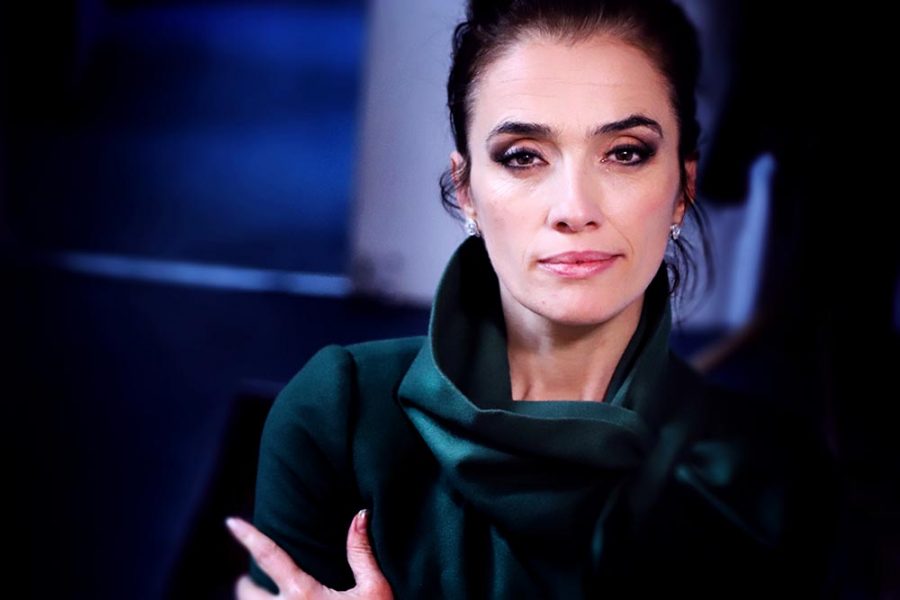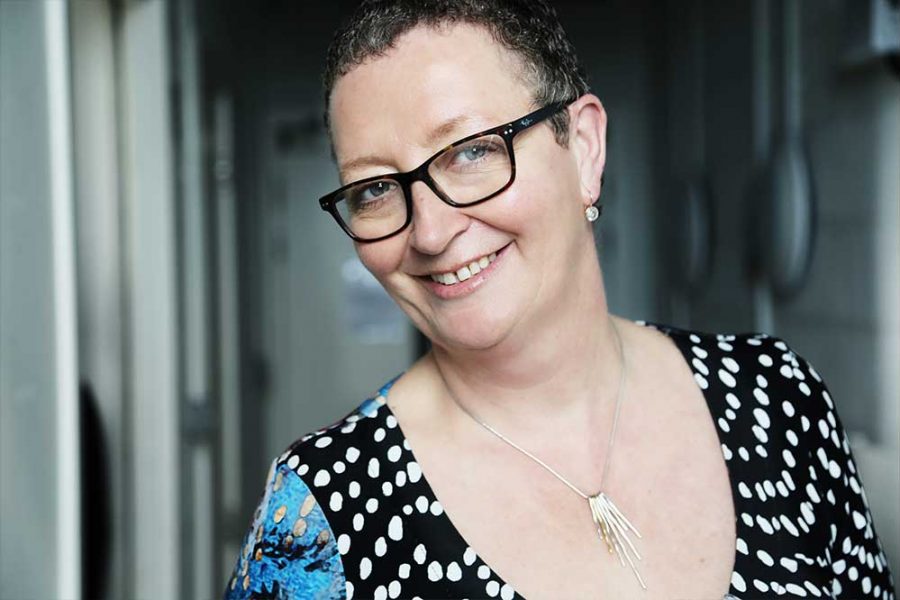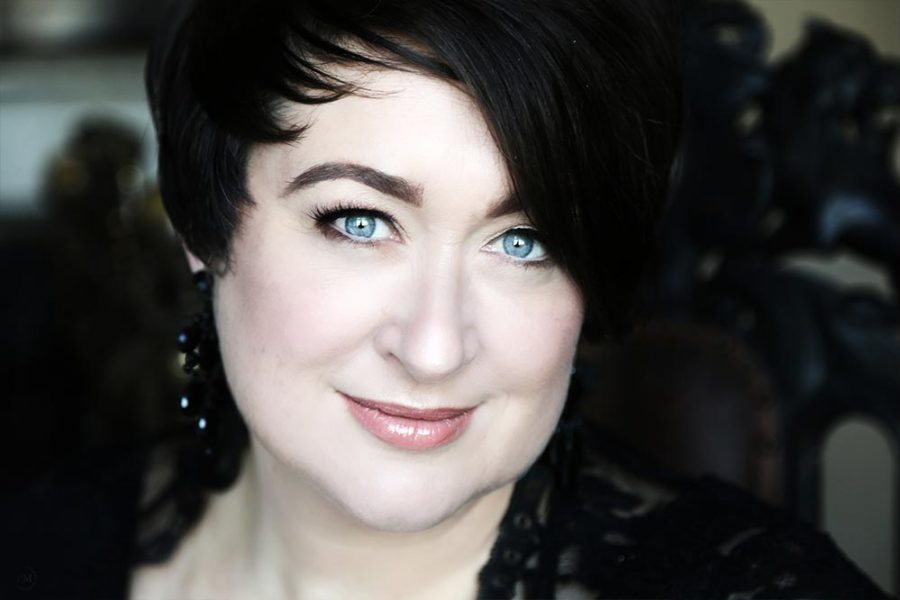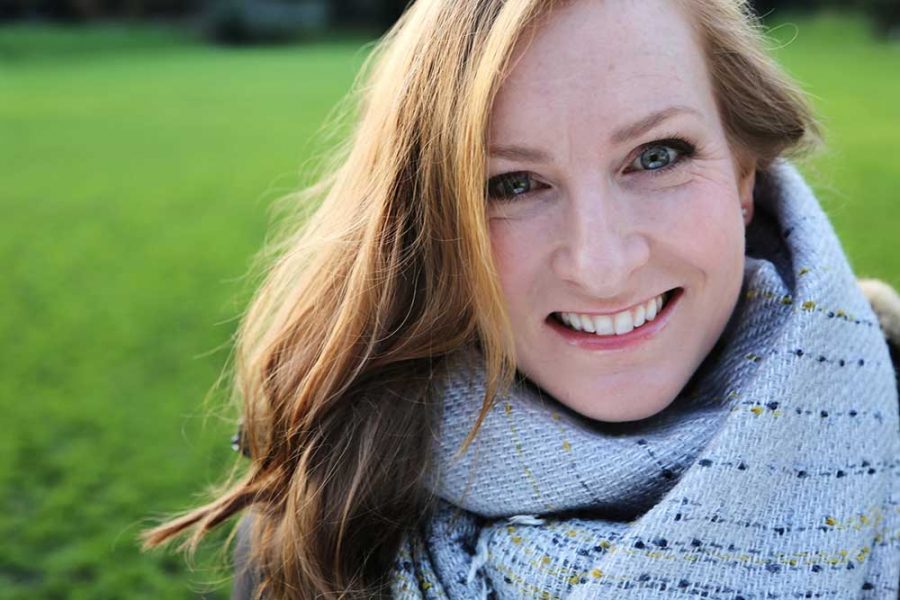For the Love of Opera: Fred Plotkin

December 2015
Words by
Emer Nestor
Photos by
Frances Marshall
New York’s refreshingly effervescent Fred Plotkin is known to many throughout the Americas and Europe for his voluminous commentary on opera and Italian food. His passion for the promotion of classical music is utterly limitless.
As a seasoned journalist whose work appears across the extended media platform, including the New York Times and National Public Radio, this Italophile enjoys nothing more than sharing his wealth of knowledge and experience regarding all things opera-related. Final Note caught up with the charismatic Plotkin during his recent visit to Ireland’s Wexford Festival Opera, accompanied by his mother, to discuss opera, writing, his impressions of Ireland and his involvement with New York Times Journeys.
...one of the strengths of New York for a very long time was that the arts were not only excellent in quality but also available to almost everyone. It produced generations of cultured New Yorkers of little means and was part of what made my city special."

Describe the classical music/opera scene in the New York of your childhood.
I grew up in New York City in the 1960s — a time when many of the greatest stars of opera, classical music, theatre and dance lived there or performed very frequently. Leonard Bernstein led the New York Philharmonic. The Metropolitan Opera had Caballé, Callas, de los Angeles, Freni, Milanov, Nilsson, Price, Rysanek, Scotto, Sutherland, Tebaldi and countless other stars (I have only named sopranos!). Although I was a small child, I had parents who loved these art forms and made sure I heard these performers. They let me come to my own conclusions. I am not ancient (not even old enough to collect a pension) but, because I began so early, I have a visual and aural memory of artists who are now recalled as “legends”.
There was also the New York City Opera, known as the ‘People’s Opera’, a superb company where Carreras, Domingo, Sills, von Stade and others got their starts. They did unusual repertory that the Met did not offer. Between the two companies, a New Yorker could hear 40 different operas each season.
It is important to point out that the arts were very affordable at that time. We were a working-class family and there was no extra money around. But tickets to music and theatre were affordable. Similarly, museums were free or very accessible. I think that one of the strengths of New York for a very long time was that the arts were not only excellent in quality but also available to almost everyone. It produced generations of cultured New Yorkers of little means and was part of what made my city special. Sadly, nowadays the classical art forms are increasingly distant from the average person and that is very unfortunate. It depletes us all in so many ways.
Did your time as a student of the Drama, Arts and Music Studies Department at the Università di Bologna shape your interest in pursuing a career in opera?
I had taken an interest in opera much earlier. I loved the stories, the music, the production elements and the excitement generated by those great singers. Every Saturday afternoon I visited my grandmother and we would listen to the Metropolitan Opera live broadcasts. She knew all the stories and told them to me. Hearing the music made me what I call a “stage director in my imagination” and that set me on my way. I had been interested in acting but soon lost interest in the idea of playing a part again and again. My voice, I knew, was not good enough for opera and I am very pleased that I accepted that fact early enough to avoid delusions of vocal grandeur. So I resolved to learn opera and do other things in it.
My first experience was as a teenage apprentice at the Lyric Opera of Chicago while attending the University of Wisconsin. In both places I learned stagecraft, production, theatre management and still listened to the Met every Saturday on the radio. I also studied Spanish and French languages and European history and culture — especially everything Italian as that nation was the birthplace of opera.
After two years in the American Midwest, I decided to move to Italy to study in Bologna at the conservatory called DAMS, which is to Italy what Juilliard is to America. In Italy I learned a phenomenal amount about Italian taste, values, gestures, ideals and contradictions. I had been fascinated by Italy since I was five years old and, when we arrived there, I felt entirely at home in that country and still do. It has never felt foreign. Italy is half of my life and my being and I always tell people that they can’t really know me until they see me there.
In addition to visiting every region of Italy, my specific studies at DAMS and the Università di Bologna were a total immersion in Italian language, history, literature, musicology and life in the theatre. Bologna has, without doubt, the finest food markets in Italy and I learned, unselfconsciously and with no sense of being a “foodie” (the word had not yet been coined), about the magnificent and peerless culinary culture of Italy.
For a couple of summers, when the school year ended in Bologna, I lived in Verona and assisted opera stage directors, including Franco Zeffirelli, on their productions. I also carried the proverbial spears in Aïda and many other operas. This practical experience of getting a show onstage every night during the summer festival season was great training for working in repertory opera houses in the future.
Bologna had a superbly connected railway station. International expresses passed through that could take me to Paris, Geneva, Zurich, Munich, Salzburg, Vienna and elsewhere. Student fares were very cheap and I would travel overnight to these great cities, learn them well and then go to opera in their storied theatres. I discovered repertory I did not know in New York. I heard many of the top European singers and conductors. Above all, I learned the operatic traditions of these nations and that knowledge is the foundation I have built upon in the four decades since.

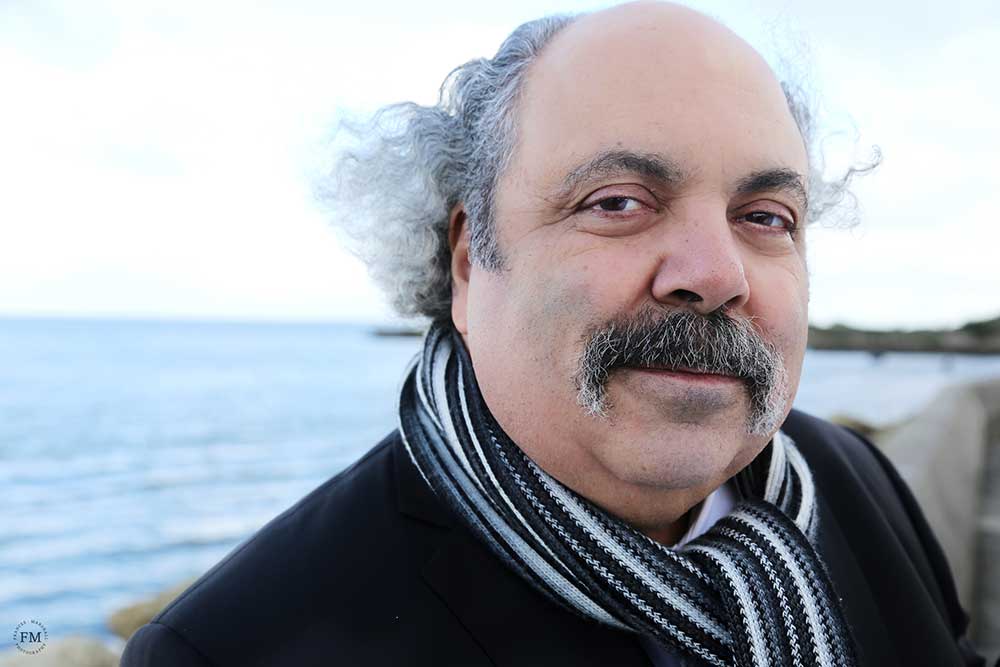


...I am a communicative person who loves to share what he has learned. That is my kind of journalism."

What are your fondest memories of your early days as a Fulbright scholar at Teatro alla Scala?
After finishing my studies in Bologna, I returned to Wisconsin to complete my degree (BA, with honours, with a double major of Italian history and Theatre and Opera production). I was fortunate to be given a Fulbright Scholarship to reside at the Università di Pavia, just south of Milan. It was arranged, through the kind intercession of mentors, that I fall under the spell of the great stage director Giorgio Strehler, who did remarkable productions at La Scala (as well as in Paris and Austria) and was the head of the Piccolo Teatro di Milano (Italy’s finest theatre for plays). Strehler was a genius and I was allowed to assist him, watch him in action and ask questions. He was a complicated person but so admirable for his vision and creativity. He would ask me to step in to restage scenes that he had directed, or hand me a libretto and score of an opera and say, “va bene, Fred, how would you direct this on a bare stage?” Part of this experience was sitting in rehearsals to watch the magnificent Claudio Abbado work with the singers and Strehler. These were two geniuses but both understood that their job was to serve the work of composers and librettists. Singers such as Freni, Cappuccilli, Carreras, Domingo and Raimondi were regulars at La Scala and I got to direct scenes with them and assist on productions.
Why did you segue into the field of music journalism?
Central to my being is the fact that I am a communicative person who loves to share what he has learned. That is my kind of journalism. When I was at La Scala I was a stringer (a freelancer) for Newsweek in Milan. The two big stories there were terrorism (this was the era when the Red Brigades came to prominence) and the rise of Italian fashion houses such as Armani, Ferré and Versace.
When my Fulbright period concluded in 1979, I realized that if I stayed in Italy any longer I would never return to New York, which I had left in 1973. I loved Italy but New York was my home and my parents were there. I did not know anyone at the Metropolitan Opera, where I wanted to work, so I enrolled in the Journalism school at Columbia University. I received a Masters degree with honours, having specialized in broadcasting, so that I could reacquire my skills in spoken English.
I graduated in 1980 on my 24th birthday. Opera was still my goal so I turned down job offers in journalism and took a position at Stagebill, then the programme for the Metropolitan Opera. This led to an offer to become the Met’s Performance Manager, which I did until February 6, 1988. My last performance was La bohéme with Carlos Kleiber conducting Mirella Freni and Luciano Pavarotti. The job of Performance Manager was different in the 1980s than what it is now (akin to being a theatre house manager). In my time, dealing with audiences and the public was one-third of what I did. I also had many dealings with singers and conductors (some of whom I had worked with in Europe) and collaborated with the departments at the Met that did technical issues on the stage, broadcasting, development, media relations and union contract negotiations.
I left the Met, a company I adore, for two reasons. I missed Italy terribly and wanted it to be more a part of my life again. Also, I wanted to take what I had learned and use it elsewhere. I became a consultant to many opera companies and worked for the National Endowment for the Arts, which sent me around the US as an opera expert who helped companies improve their operations and level of artistic quality.
This new life has been filled with adventure and has required me to flex all of my creative muscles. It includes having written nine books (Italy for the Gourmet Traveller and five other books on Italian culinary culture; Opera 101: A Complete Guide to Learning and Loving Opera and Classical Music 101: A Complete Guide to Learning and Loving Classical Music). I have written thousands of articles on many topics for leading publications in the US, Britain and Italy. I write one of the world’s most read opera blogs for WQXR (America’s oldest and largest classical music radio station).
I also lecture on Italian opera at New York University, usually in collaboration with major musicians and singers. These classes are streamed internationally and archived at vimeo.com. I teach opera at the Smithsonian Institution, lecture at many opera companies and festivals (including Salzburg and Verbier) and speak annually at the Oxford Literary Festival on topics relating to opera and to Italy. And I am the opera expert/study leader for New York Times Journeys, in which people sign up to learn opera from me while attending performances in places such as Italy, Austria and the Wexford Festival in Ireland.
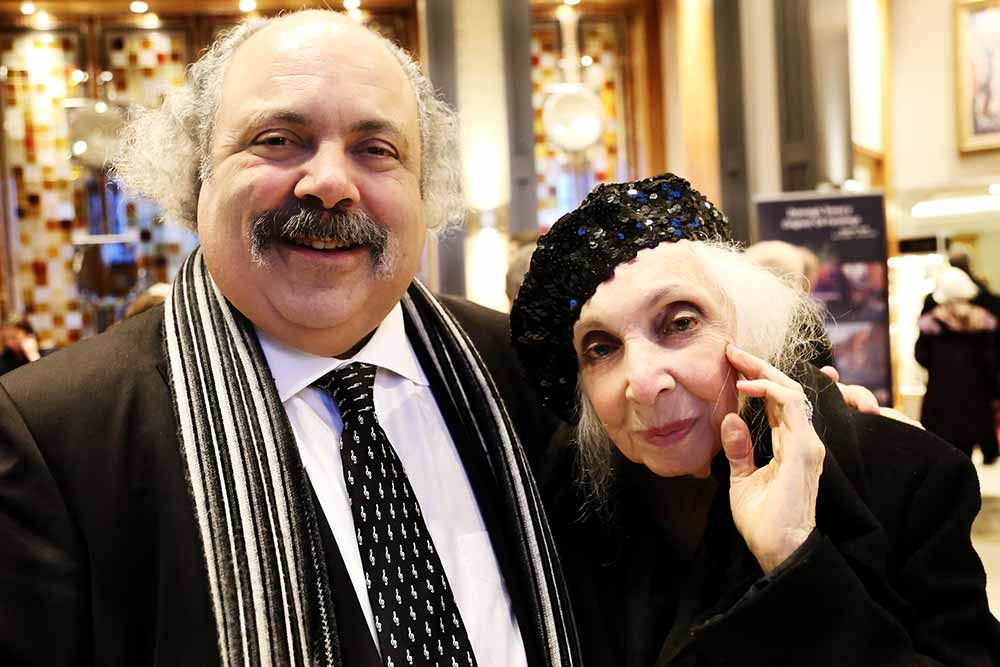


Having enjoyed such an active role in the cultivation of attitudes towards opera over the course of your career, what are your thoughts on the evolution of the art form in the twenty-first century?
We know that opera was born in Florence in 1597 and it has been evolving and changing ever since. It is the most radical and revolutionary of all art forms. It is a miraculous alchemy of the human voice, orchestral music, words, theatre, dance, visual arts and more. It is made in many languages and appeals to people all over the world. This is an art form of the people. It is a remarkable mirror of human emotion and behaviour, writ large through glorious music. It has also fostered all kinds of technology — stage effects, electrical lighting, recording, broadcasting — and is certainly the most cinematic of all of the live performing arts.
In my view, technology benefits opera as long as it does not overwhelm it. Nothing compares to a live performance of opera, hearing an amazing orchestra and chorus performing in an acoustically beautiful space and, above all, experiencing the miracle of solo singers who can create gorgeous sound and deeply moving performances without amplification or electronic mediation. Nowadays it is just phenomenal and rare to hear opera singers in their own, natural voices.
What motivated the decision to write Opera 101: A Complete Guide to Learning and Loving Opera and your selection process for each subgenre category?
I wrote this book because I discovered that the method I use to get people interested in opera is different from what other people do. Rather than give them just enough information to be conversant on composers, singers and famous opera plots, I decided that the way to really prepare someone for opera-going was to teach them every aspect of opera by using works that include what I want them to know. Notice the subtitle of my book is important. It is about learning and loving opera.
For my book I picked 11 operas that the reader would learn by listening to audio recordings while reading my narrative: Rigoletto, Tosca, Lucia di Lammermoor, Il Barbiere di Siviglia, Don Giovanni, Les Contes d’Hoffmann, Eugene Onegin, Don Carlo, Tannhäuser, Die Walküre and Elektra. It is not that I think these are the best 11 operas — though they are all fantastic — but rather that by the time you have learned them all you have the preparation to attend any opera in any style and language and be able to experience and love the works you are hearing. The method I use involves the art of listening (as opposed to simply hearing) and being “stage director in your imagination”.
In the book I have a quick history of opera, plus detailed sections on opera-going and the subjects of the role that conductor, orchestra, chorus, stage direction, scenery, costumes, lighting, choreography and more all play in a night at the opera. The book is used in many universities and is the most popular book on opera education in the US for people of all ages.
Do you have any designs to write anything further on the subject?
I write almost 100 articles per year on my blog for WQXR radio that are read everywhere (www.wqxr.org/people/fred-plotkin). I think of these as journalism online rather than brief spoutings of opinion. The articles are part education/part coverage of breaking news/part informed opinion and a considerable amount of advocacy for an art form I love. Readers who go to my page can read every article I have produced since March 2011.
Your love of all things Italian is well documented — what draws you to this state of mind?
I am fascinated by how the Italian mind works. Their ability to look at something confounding or ordinary and transform it into something useful, durable and beautiful is extraordinary. This applies to everything Italy produces, from the simplest meal or garment all the way up to a sports car, an opera production or a cathedral. When Italians look at something or learn of something, they do not only take in what they see. Rather, they try to understand what they think might be “behind” it or, as we might say, within it and what we don’t see. Learning this approach has changed the way I perceive everything I see, hear, taste, smell and touch.
Congratulations on your recent receipt of the prestigious Cavaliere della Stella d’Italia — what does such an honor mean to you?
Grazie! This is the Italian equivalent of a knighthood, with the big difference that it is not conferred by a monarch but rather the president of Italy. It very seldom goes to foreigners, so I am mindful that this honour is indeed rare and special. I am told it is for my “service” to Italian culture and my role in spreading it around the world through my work in opera, my speaking and writing. For all these years I did it out of sheer love and pleasure, never thinking that such recognition would come my way.
Tell us about your involvement in the New York Times Journeys and your recent visit to Wexford.
Times Journeys [www.nytimes.com/times-journeys] is the travel branch of my hometown newspaper. They have experts in different fields who teach on their trips to different destinations. I am their opera expert and I structure these trips myself so that those who attend will have a full experience of opera backstage and in the auditorium as well as everything that happens on the stage. We have gone to Italy, the Wexford Festival and Dublin in Ireland. The next trip is to Salzburg and Vienna in January and then back to Italy in late October 2016. I plan all the meals too and make sure that my charges get to meet singers, designers, conductors and more.
Our recent trip to Wexford and Dublin was wonderful. First and foremost because the Irish people are so welcoming and fun to be with. The beautiful, intimate opera house in Wexford is also welcoming and I had prepared my people to know that they would see works they had never even heard of, not to mention having seen or heard. Learning new things is thrilling in that it leads to growth and discovery. We had all of that and more in Ireland. In Dublin we attended a master class given by the extraordinary Veronica Dunne at the Royal Irish Academy of Music. For many in my group it was the absolute highlight of the Journey. We heard marvelous young singers and that is good news.
What are your impressions of Irish Opera, when compared to the rest of Europe and the US?
I have not seen much Irish opera but I really enjoyed two of the productions created in Wexford: Delius’s Koanga and Mascagni’s Guglielmo Ratcliffe. There were many fine young singers, many of them Irish. I have long enjoyed Irish singers from Ann Murray to Tara Erraught. They all have lovely voices, excellent training, a naturalness on the stage and, more than most singers, a sensitivity to text that is a product of Irish people being inveterate storytellers.
Any thoughts on your experience of Irish gastronomy thus far?
I have been visiting Ireland since 1976 and not just Dublin. I have always enjoyed the flavours of the fresh local ingredients and like when they are prepared to respect their integral goodness rather than transforming them into something “cheffy” and “foodie”. The fish and seafood are wonderful — Dublin Bay prawns make me swoon — and I love the breads, cereals, grains, meats and, above all, Irish cheeses. I eat them all the time at my home in New York.
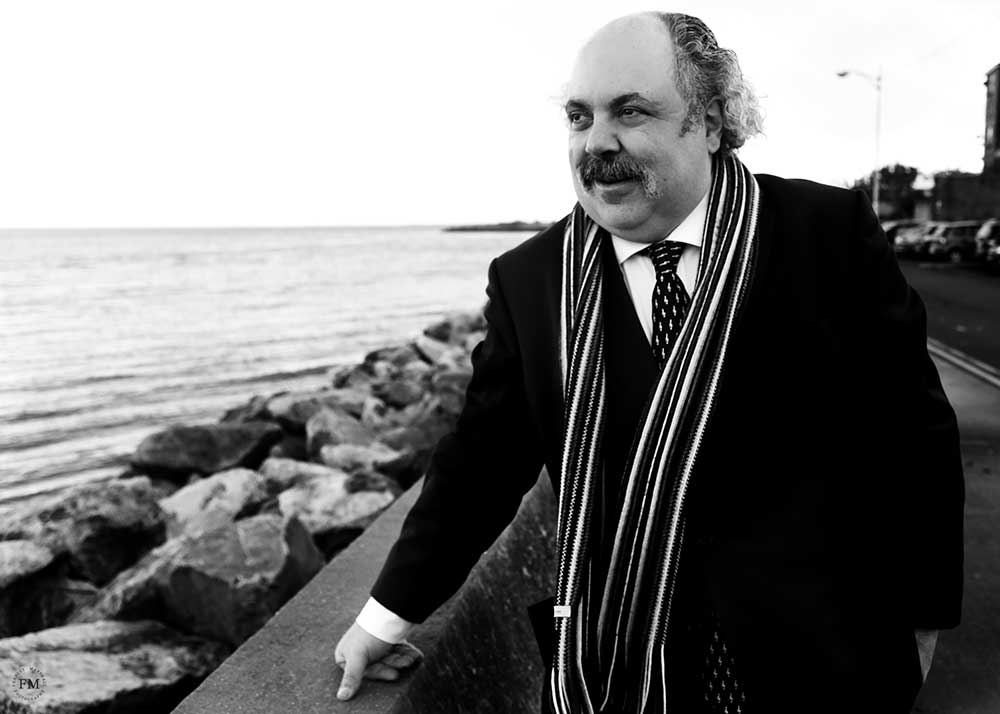

As a renowned bon vivant and natural performer, what inspires you?
I refer to myself as a pleasure activist. This is not as risqué as it might sound. By this I mean that we humans have been given the remarkable gift of the five senses and yet we barely use them. I advocate for really activating the senses so that we listen rather than just hear, observe rather than simply see, and savor instead of just tasting and smelling. When people ask why I seem to know so much about certain things, my answer is simple: I pay close attention and use my senses as part of this. When we really use them to the fullest, they feed our sixth sense: intuition. I fervently believe that this gift of the senses is not for mindless and exaggerated pleasure-seeking but really learning from and finding inspiration in all that we perceive.
I feel comfortable on a stage, I think, because I decided long ago to not recite the lines others have written but to say what I have learned, believe and care about. People seem to respond to what they consider my heartfelt expression of what I love. If I can enjoy what I do and give pleasure and inspiration to others in the process, then I am a very fortunate man.
All images displayed in this article are subject to copyright.
Share this article


